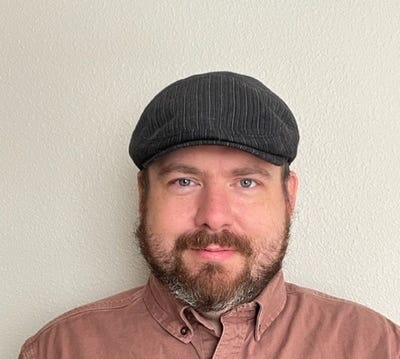CHOP teams with INCA to bring CAR-T therapies to children in BrazilCHOP teams with INCA to bring CAR-T therapies to children in Brazil
The organizations have built a CAR-T cell production center in Rio de Janeiro, Brazil with help from a $4 million government grant.

Children's Hospital of Philadelphia (CHOP) announced a partnership to build a chimeric antigen receptor (CAR)-T cell production center at the Brazilian National Cancer Institute (INCA) as part of its mission to bring life-saving treatments to children around the world. The facility will be used to manufacture CAR-T cell therapies for patients with B-cell acute lymphoblastic leukemia (B-ALL), using Miltenyi Biotec’s Prodigy platform, which CHOP has done since 2022.
CHOP is a charitable, nonprofit organization that was the first pediatric hospital in the US, founded in 1855 in Philadelphia, Pennsylvania.
The hospital says that since 2017, it has treated more than 500 children using CAR-T therapies, which is more than any other pediatric hospital in the world. It is particularly famous for the story of Emily Whitehead, who was the first pediatric patient to receive a CAR-T therapy at the hospital in 2012, in her case for acute lymphoblastic leukemia (ALL).
"While immunotherapy is now generally available for pediatric patients with relapsed or refractory B-cell B-ALL in Brazil, the public health system struggles to pay for its steep price," said Stephan Kadauke, associate director of the Cell Based Therapy Laboratory (CBTL) at CHOP. "Traditional CAR-T cell manufacturing is costly, in part due to its complex, lengthy process that requires highly trained staff to manage every step of manufacturing operations."
BioProcess Insider spoke with Kadauke about his laboratory at CHOP, which produces cellular therapies such as CAR-T cells. “Any kid that comes to CHOP [and] needs a bone marrow transplant or CAR-T cell therapy ultimately comes [through] us.”
CHOP credits the closed-system Prodigy platform’s automation capabilities and reduced training requirements as enabling its lab to produce therapies at a lower cost, when compared with other methods. “[It] automates several steps in the CAR-T manufacturing process, including T-cell isolation, activation, transduction, and expansion,” Kadauke said. “One of the key advantages of automated processing platforms like the Prodigy is the simplicity of training. Traditional CAR-T manufacturing requires highly skilled cell-therapy specialists trained extensively on multiple devices and processes. In contrast, technologists with less experience can become proficient with the Prodigy in just a few days of training.”
Technicians under Martin Bonamino, the head of the CAR-T program at INCA, have trained for the new facility by shadowing Kadauke’s team at CBTL during a manufacturing run. The organization has since performed its first engineering run under supervision from CHOP. “We're in the middle of confirming all of the product testing and so forth,” Kadauke said.
With its current funding, the new facility is equipped to treat about 30 children. “Since this is a government-funded program, we anticipate that if early results demonstrate safety and efficacy, additional funding mechanisms will allow us to scale and treat more patients.”
Origins of a partnership
The relationship between CHOP and INCA blossomed when Kadauke visited Rio de Janeiro to visit a high school friend during the annual Carnival festival. During that time, he was introduced to Bonamino. “We started talking about the work we were doing at CHOP and discovered we were tackling many of the same challenges.” CHOP soon learned about the Brazilian Ministry of Health’s grant opportunity. After submitting a proposal, Kadauke and Bonaminosecured $4 million to bring a CAR-T laboratory to Brazil.
Kadauke credited the existence of the grant with Brazil’s public health care system, which he said provides healthcare to 60% of the country's population. Such a system incentivized the creation of the cell-therapy production site to enable patients to receive a therapy that would otherwise be too expensive. In Brazil, Kadauke said, citizens can sue the government for treatments they can’t afford. “A judge will rule in your favor and order the government to pay the price for the therapy.”
Fortunately, INCA already has much of the infrastructure in place to bring CAR-T labs to Rio. CHOP and INCA are utilizing cord blood banks that have fallen into disuse due to the decreasing demand for cord blood transplants. “This creates a unique opportunity to repurpose these cleanrooms for small-footprint, closed-system CAR-T manufacturing,” Kadauke said. “This approach allows us to leverage existing infrastructure rather than building from scratch.”
Beyond its work in Brazil, CHOP is committed to expanding access to advanced therapies around the globe. According to Kadauke, the organization has recently partnered with Sidra Medicine in Qatar “to perform their first pediatric stem cell collection for a bone marrow transplant.”
“We’re actively involved in bringing novel therapies, including those for sickle cell disease, to underserved regions. These efforts often involve partnerships like the one with INCA, where we combine expertise to build local capacity and infrastructure.”
About the Author
You May Also Like







